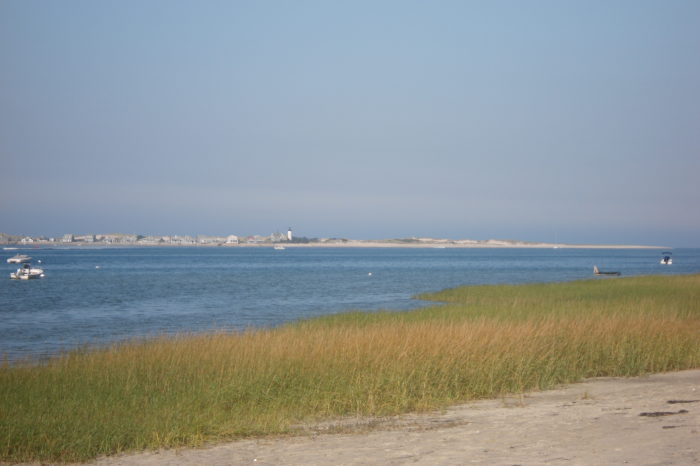MA Short-Term Rental Tax is a Big Win for Cape’s Wastewater Management
Massachusetts lawmakers recently passed legislation to extend the 5.7 percent surtax on hotel and motel room occupancy to short-term rentals. The legislation will also give towns the option of adding an additional 6 percent onto the tax; 9 percent if an owner rents out two or more units in the same community.
The primary objective of the legislation is to capture revenue from rooms rented through online services like Airbnb. The bill will make Massachusetts the first state to track short-term rentals via a statewide registry. While Governor Baker returned the bill to Beacon Hill for more work because of his feeling that homeowners who rent their homes for less than 14 days a year should be exempt from the tax, and because of the amount of “personally identifiable information” included in the new public registry, most agree that the legislation – or a version very similar – will be signed into law.
The bill is projected to generate an estimated $34.5 million in state revenue and will prove especially significant for Cape Cod; it includes an additional 2.75 percent surtax on units rented in Barnstable, Dukes, and Nantucket to fund a new Cape and Islands Water Protection Fund. The revenue generated in each town is expected to offset the cost of sewer system expansions and other costly wastewater management efforts.
Funding for wastewater management on the Cape has been in the works for a number of years. As a result of a 2011 lawsuit filed by the Conservation Law Foundation, Cape Cod towns are legally mandated to develop and build wastewater management systems to clean up nitrogen pollution. According to State Senator Julian Cyr (D-Truro), “The creation of the Cape and Islands Water Protection Fund within the legislation is an essential step to fund the Commonwealth’s $1 billion commitment to help clean up the excess nitrogen pollution in the bays and estuaries.” There is no question that this new fund provides a much-needed resource to clean and maintain Cape Cod’s pristine appearance. In fact, Andrew Gottlieb, executive director of the Association to Preserve Cape Cod, said, “The creation of the Cape and Islands Water Protection Fund is the most significant legislative achievement for Cape Cod in a generation.”
Cape Cod is hoping to not only benefit from the new Water Protection Fund, but also from the short-term rental tax as well. The extension of the 5.7 percent surtax to short-term rental levels the playing field by regulating the short-term rentals, a previously unregulated market that was causing inequity in the larger housing market. In fact, a 2016 study by the University of Massachusetts found that rents were an average of $93 per month higher in parts of Boston with the most Airbnb listings. Furthermore, the bill comes amid concerns that the short-term rental market is enticing more landlords to take their properties off the market because they can earn more money renting them out for a few days at a time.
Despite Airbnb saying it will agree to collect taxes on behalf of its operators, some people are worried that the tax will dissuade Airbnb and other short-term rental companies from working in the Boston market. Crystal Davis, a spokeswoman for Airbnb, said in a statement, “While we appreciate the Massachusetts Senate and House for their progress on home sharing policy and taxation, a public registry of our hosts sets a precedent that negatively impacts families who home share, and the state’s reputation as a business leader.”
Another one of Airbnb’s primary concerns is that the legislation would prohibit renters from participating in home sharing. According to Will Burns, Airbnb’s Massachusetts public policy director, the bill “would completely foreclose renters from sharing their homes,” which is significant as nearly two-thirds of the city’s housing stock is rental units. This could cause many renters to struggle to pay rent as they will be unable to rent out any extra rooms.
Despite some citizens’ concerns over Massachusetts’ ability to attract other home sharing businesses because of the tax and the bill’s effect on renters, the extra 2.75 percent surtax will support Cape Cod’s mission of cleaning up its nitrogen pollution by asking the Cape’s many visitors to shoulder some of the cost of maintaining the region’s natural beauty. An added benefit of the rental tax bill is that, according to Representative Sarah Peake (D-Provincetown), without it many would see their real estate taxes rise “beyond what they could afford.” If the law is passed, the new taxes will take effect in January 2019 for all units booked after January first. According to Wendy Northcross, the CEO of Cape Cod’s Chamber of Commerce, the benefits of the tax cannot reach the Cape soon enough, as the Cape’s water is “the foundation of its economic prosperity.”
Harris Foulkes is a Pioneer Transparency Intern and is a rising freshman at Amherst College where he plans to study economics.



